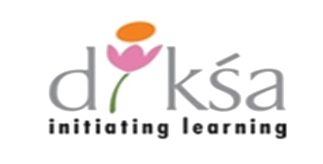Thinking Skills Program
Diksa offers a thinking skills workshop for children based on Feuerstein’s Instrumental Enrichment (F.I.E) Program.
Thinking or cognition involves several tasks – solving problems, reasoning, remembering, creativity, planning, imagining, fantasizing, and even daydreaming.
Until recently, Intelligence was assessed by a battery of tests and a score called the I.Q or the intelligence quotient was arrived at.
Today cognitive psychologists believe that intelligence is a dynamic process. It is now seen as ever changing, ever growing. It is now believed that thinking like anything else can be taught. In that sense the terms thinking, cognition, and learning are terms that can be used interchangeably.
Prof Reuven Feuerstein of the International Center for Enhancement of Learning Potential, Israel, has developed the Instrumental Enrichment Program, which is a series of 14 structured paper-pencil activities designed to teach specific thinking skills to students.

The thinking process is broadly classified into three stages:-
- The Input stage – or information gathering stage: for example if you are given mathematical problem then you first have to read the problem, register the numbers, units etc. with clarity and precision.
- The Elaboration stage – or the information processing stage in which you would analyse the problem, and decide on the operation required in solving it.
- The Output stage – or the expressive stage in which you actually work out the sum on paper and write out the answer.
These three stages cannot be clearly distinguished during the thinking process but there are several overlaps.
The mediator or the teacher identifies the cognitive deficits in each of the above phases and mediates the appropriate thinking skill to the student using a specific task of the instrument. A lot of peer learning also happens when the students are encouraged to think aloud and several tasks are solved together.
Students who have gone through this program have shown tremendous improvement in their attention span, analytical thinking, deductive and inductive reasoning and motivation.
Any student above the age of 8 irrespective of his or her academic skills will benefit from this program.
